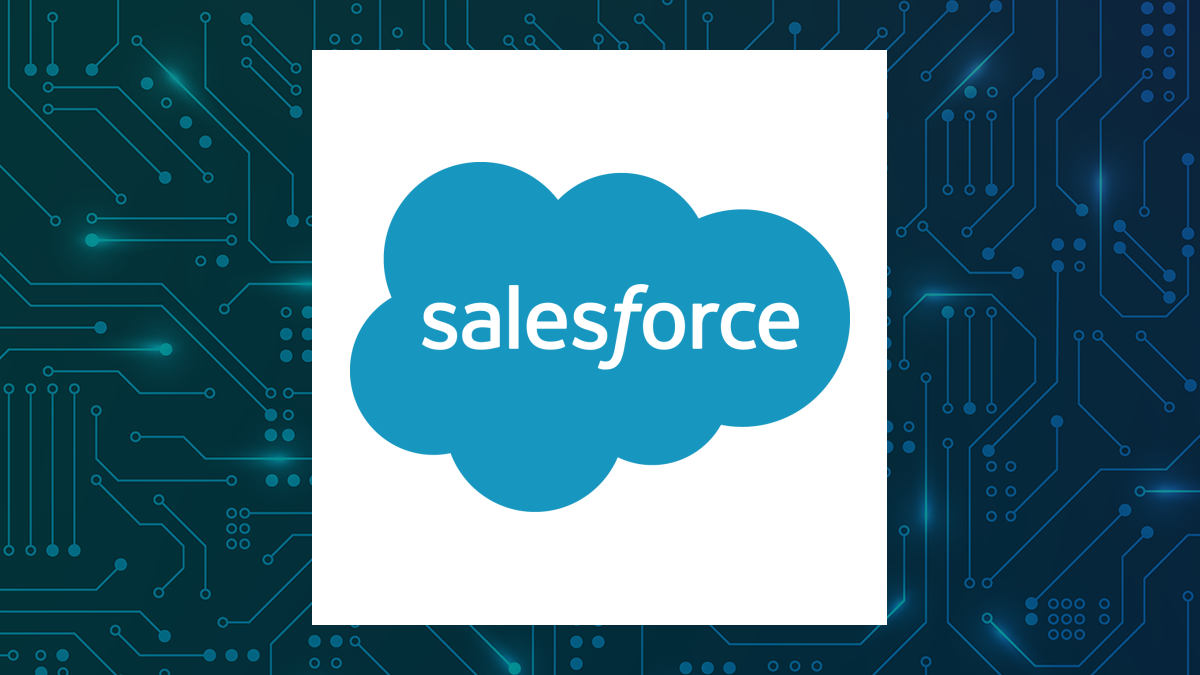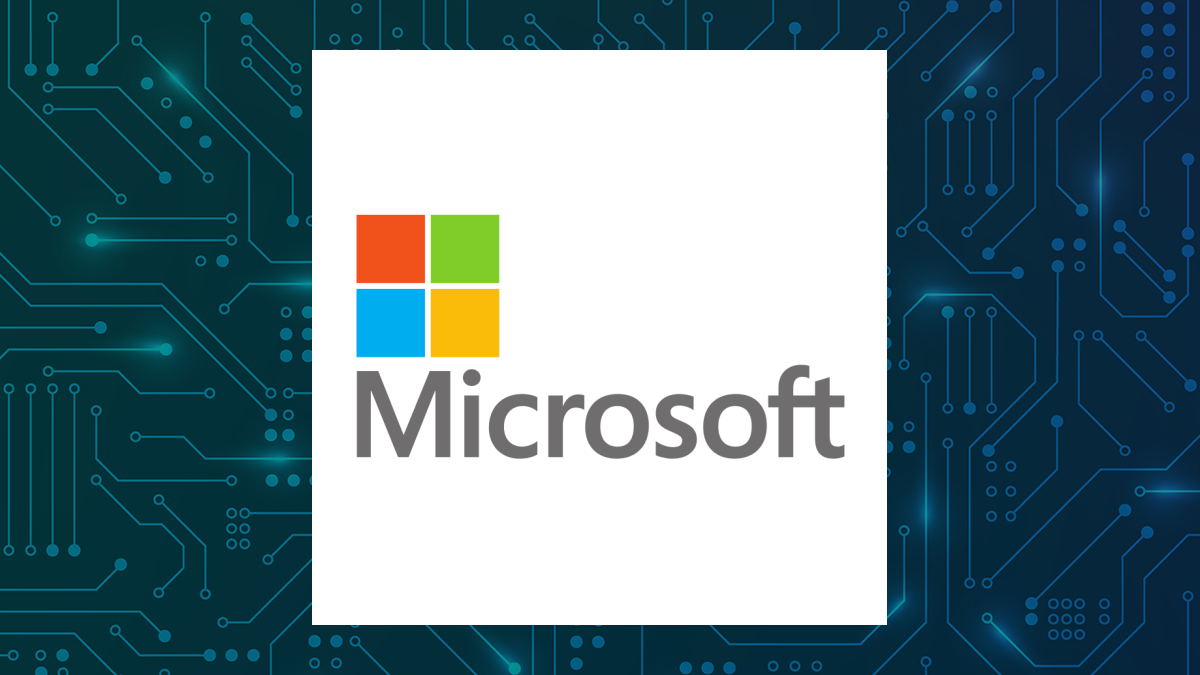Salesforce (NYSE:CRM – Get Free Report) and Microsoft (NASDAQ:MSFT – Get Free Report) are both large-cap computer and technology companies, but which is the better investment? We will compare the two businesses based on the strength of their risk, valuation, institutional ownership, analyst recommendations, dividends, earnings and profitability.
Insider & Institutional Ownership
80.4% of Salesforce shares are held by institutional investors. Comparatively, 71.1% of Microsoft shares are held by institutional investors. 3.0% of Salesforce shares are held by insiders. Comparatively, 0.0% of Microsoft shares are held by insiders. Strong institutional ownership is an indication that hedge funds, large money managers and endowments believe a company is poised for long-term growth.
Earnings and Valuation
This table compares Salesforce and Microsoft”s revenue, earnings per share and valuation.
| Gross Revenue | Price/Sales Ratio | Net Income | Earnings Per Share | Price/Earnings Ratio | |
| Salesforce | $37.90 billion | 6.12 | $6.20 billion | $6.88 | 35.40 |
| Microsoft | $281.72 billion | 13.49 | $101.83 billion | $13.64 | 37.50 |
Microsoft has higher revenue and earnings than Salesforce. Salesforce is trading at a lower price-to-earnings ratio than Microsoft, indicating that it is currently the more affordable of the two stocks.
Profitability
This table compares Salesforce and Microsoft’s net margins, return on equity and return on assets.
| Net Margins | Return on Equity | Return on Assets | |
| Salesforce | 16.87% | 13.27% | 8.21% |
| Microsoft | 36.15% | 32.44% | 18.20% |
Dividends
Salesforce pays an annual dividend of $1.66 per share and has a dividend yield of 0.7%. Microsoft pays an annual dividend of $3.32 per share and has a dividend yield of 0.6%. Salesforce pays out 24.1% of its earnings in the form of a dividend. Microsoft pays out 24.3% of its earnings in the form of a dividend. Both companies have healthy payout ratios and should be able to cover their dividend payments with earnings for the next several years. Salesforce has increased its dividend for 1 consecutive years and Microsoft has increased its dividend for 23 consecutive years. Salesforce is clearly the better dividend stock, given its higher yield and lower payout ratio.
Volatility & Risk
Salesforce has a beta of 1.22, meaning that its share price is 22% more volatile than the S&P 500. Comparatively, Microsoft has a beta of 1.04, meaning that its share price is 4% more volatile than the S&P 500.
Analyst Ratings
This is a breakdown of recent ratings for Salesforce and Microsoft, as provided by MarketBeat.
| Sell Ratings | Hold Ratings | Buy Ratings | Strong Buy Ratings | Rating Score | |
| Salesforce | 1 | 10 | 26 | 1 | 2.71 |
| Microsoft | 0 | 2 | 29 | 1 | 2.97 |
Salesforce currently has a consensus price target of $332.58, suggesting a potential upside of 36.54%. Microsoft has a consensus price target of $614.45, suggesting a potential upside of 20.14%. Given Salesforce’s higher possible upside, analysts plainly believe Salesforce is more favorable than Microsoft.
Summary
Microsoft beats Salesforce on 11 of the 17 factors compared between the two stocks.
About Salesforce
 Salesforce, Inc. provides Customer Relationship Management (CRM) technology that brings companies and customers together worldwide. The company's service includes sales to store data, monitor leads and progress, forecast opportunities, gain insights through analytics and artificial intelligence, and deliver quotes, contracts, and invoices; and service that enables companies to deliver trusted and highly personalized customer support at scale. In addition, its platform offering comprise a flexible platform that enables companies of various sizes, locations, and industries to build business workflow and apps with customer; online learning platform that allows anyone to learn in-demand Salesforce skills; and Slack, an intelligent productivity platform. The company's marketing services enables companies to plan, personalize, automate, and optimize customer marketing journey, connecting interaction, and connected products; and commerce services, which empowers shopping experience across various customer touchpoint, such as mobile, web, social, and stores and provides click-to-code tools that offers customers to build and deploy solutions. Further, its analytics offering includes Tableau, an end-to-end analytics solution for range of enterprise use cases and intelligent analytics with AI models, spot trends, predict outcomes, creates summaries, timely recommendations, and take action from any device; and integration service including MuleSoft, which provides building blocks to deliver end-to-end and connected experiences. Additionally, the company provides data cloud, a hyperscale data engine native to Salesforce; vertical services to meet the needs of customers in industries, such as financial services, healthcare and life sciences, manufacturing and automotive and government; and offers salesforce starter for small and medium-sized businesses. Salesforce, Inc. was incorporated in 1999 and is headquartered in San Francisco, California.
Salesforce, Inc. provides Customer Relationship Management (CRM) technology that brings companies and customers together worldwide. The company's service includes sales to store data, monitor leads and progress, forecast opportunities, gain insights through analytics and artificial intelligence, and deliver quotes, contracts, and invoices; and service that enables companies to deliver trusted and highly personalized customer support at scale. In addition, its platform offering comprise a flexible platform that enables companies of various sizes, locations, and industries to build business workflow and apps with customer; online learning platform that allows anyone to learn in-demand Salesforce skills; and Slack, an intelligent productivity platform. The company's marketing services enables companies to plan, personalize, automate, and optimize customer marketing journey, connecting interaction, and connected products; and commerce services, which empowers shopping experience across various customer touchpoint, such as mobile, web, social, and stores and provides click-to-code tools that offers customers to build and deploy solutions. Further, its analytics offering includes Tableau, an end-to-end analytics solution for range of enterprise use cases and intelligent analytics with AI models, spot trends, predict outcomes, creates summaries, timely recommendations, and take action from any device; and integration service including MuleSoft, which provides building blocks to deliver end-to-end and connected experiences. Additionally, the company provides data cloud, a hyperscale data engine native to Salesforce; vertical services to meet the needs of customers in industries, such as financial services, healthcare and life sciences, manufacturing and automotive and government; and offers salesforce starter for small and medium-sized businesses. Salesforce, Inc. was incorporated in 1999 and is headquartered in San Francisco, California.
About Microsoft
 Microsoft Corporation develops and supports software, services, devices and solutions worldwide. The Productivity and Business Processes segment offers office, exchange, SharePoint, Microsoft Teams, office 365 Security and Compliance, Microsoft viva, and Microsoft 365 copilot; and office consumer services, such as Microsoft 365 consumer subscriptions, Office licensed on-premises, and other office services. This segment also provides LinkedIn; and dynamics business solutions, including Dynamics 365, a set of intelligent, cloud-based applications across ERP, CRM, power apps, and power automate; and on-premises ERP and CRM applications. The Intelligent Cloud segment offers server products and cloud services, such as azure and other cloud services; SQL and windows server, visual studio, system center, and related client access licenses, as well as nuance and GitHub; and enterprise services including enterprise support services, industry solutions, and nuance professional services. The More Personal Computing segment offers Windows, including windows OEM licensing and other non-volume licensing of the Windows operating system; Windows commercial comprising volume licensing of the Windows operating system, windows cloud services, and other Windows commercial offerings; patent licensing; and windows Internet of Things; and devices, such as surface, HoloLens, and PC accessories. Additionally, this segment provides gaming, which includes Xbox hardware and content, and first- and third-party content; Xbox game pass and other subscriptions, cloud gaming, advertising, third-party disc royalties, and other cloud services; and search and news advertising, which includes Bing, Microsoft News and Edge, and third-party affiliates. The company sells its products through OEMs, distributors, and resellers; and directly through digital marketplaces, online, and retail stores. The company was founded in 1975 and is headquartered in Redmond, Washington.
Microsoft Corporation develops and supports software, services, devices and solutions worldwide. The Productivity and Business Processes segment offers office, exchange, SharePoint, Microsoft Teams, office 365 Security and Compliance, Microsoft viva, and Microsoft 365 copilot; and office consumer services, such as Microsoft 365 consumer subscriptions, Office licensed on-premises, and other office services. This segment also provides LinkedIn; and dynamics business solutions, including Dynamics 365, a set of intelligent, cloud-based applications across ERP, CRM, power apps, and power automate; and on-premises ERP and CRM applications. The Intelligent Cloud segment offers server products and cloud services, such as azure and other cloud services; SQL and windows server, visual studio, system center, and related client access licenses, as well as nuance and GitHub; and enterprise services including enterprise support services, industry solutions, and nuance professional services. The More Personal Computing segment offers Windows, including windows OEM licensing and other non-volume licensing of the Windows operating system; Windows commercial comprising volume licensing of the Windows operating system, windows cloud services, and other Windows commercial offerings; patent licensing; and windows Internet of Things; and devices, such as surface, HoloLens, and PC accessories. Additionally, this segment provides gaming, which includes Xbox hardware and content, and first- and third-party content; Xbox game pass and other subscriptions, cloud gaming, advertising, third-party disc royalties, and other cloud services; and search and news advertising, which includes Bing, Microsoft News and Edge, and third-party affiliates. The company sells its products through OEMs, distributors, and resellers; and directly through digital marketplaces, online, and retail stores. The company was founded in 1975 and is headquartered in Redmond, Washington.
Receive News & Ratings for Salesforce Daily - Enter your email address below to receive a concise daily summary of the latest news and analysts' ratings for Salesforce and related companies with MarketBeat.com's FREE daily email newsletter.